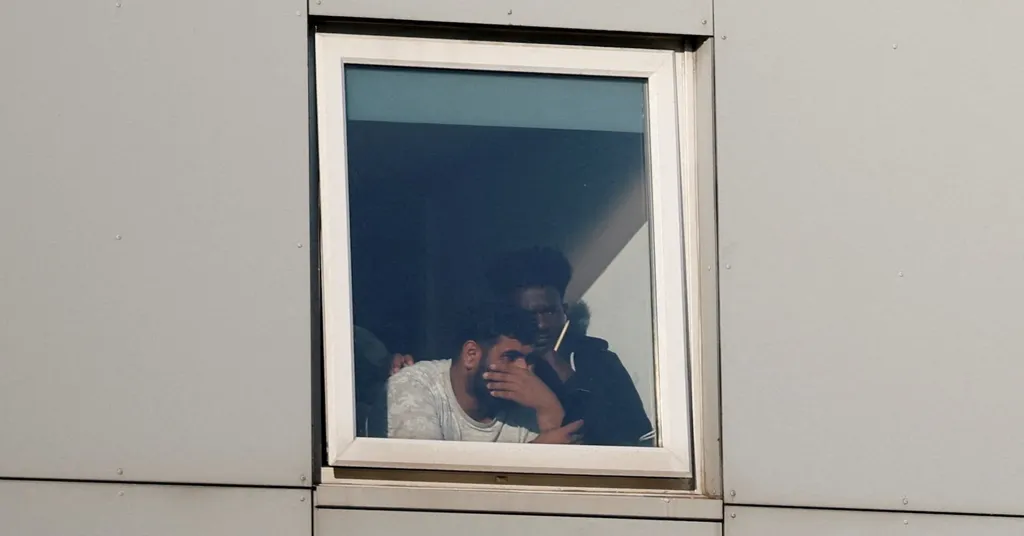LONDON, Aug 24 (Reuters) - Anti-migrant protests persisted across Britain on Sunday outside hotels housing asylum seekers, a day after police were forced to separate demonstrators and counter-protesters in multiple cities as tensions flared over immigration policies.
With immigration polling as the public's top concern, British Prime Minister Keir Starmer's Labour government has been under pressure to deliver on its pledge to end hotel use, which is costing billions of pounds a year.
Britain has seen regular protests in recent weeks outside hotels housing asylum seekers, spurred in part by concerns about public safety after a migrant who was accommodated in a hotel east of London was charged with sexual assault.
Demonstrations took place on Sunday across the country, including in Epping, east of London, Bristol and Birmingham.
A court ruling on Tuesday ordered the removal of asylum seekers from a hotel in Epping, which has become a flashpoint for anti-immigration protests. The government plans to appeal.
Protesters gathered there again on Sunday, waving British flags and holding placards that read "Epping says no" and "Stop the boats".
On Saturday, anti-immigration protesters gathered in small-scale rallies in towns and cities across England, Scotland and Wales.
Official figures on Thursday showed asylum claims were at a record high, with more migrants being housed in hotels compared with a year ago.
Nigel Farage, leader of the populist Reform UK party which has topped recent voting intention polls, set out plans for mass deportations of migrants who crossed from mainland Europe in small boats if his party were to form the next government.
He told The Times newspaper he would withdraw Britain from the European Convention on Human Rights, strike repatriation deals with countries like Afghanistan and Eritrea, and build holding sites for 24,000 migrants.
On Sunday, the government said it would reform its asylum appeals process to accelerate decisions, reduce a backlog of cases and phase out the use of hotels to house asylum seekers.
Under the plans, an independent body of adjudicators would be created to handle asylum appeals and reduce the backlog of 106,000 cases, including 51,000 appeals with average wait times exceeding a year.
Interior minister Yvette Cooper said the changes were part of efforts to "restore control and order" to a system she described as "in complete chaos" when Labour took office last year.
"We cannot carry on with these completely unacceptable delays," Cooper said.
Reporting by Sam Tabahriti; Editing by David Holmes and Ros Russell
